Devil’s Advocate – Ancient Phrase Traced To The Roman Catholic Church
Ellen Lloyd - AncientPages.com - In modern times, the Devil’s Advocate is one of the most popular English idioms. You may have heard or even occasionally used this familiar expression, but did you know the phrase can be traced to the Roman Catholic Church, which long had an office for a person who was employed as the Devil's advocate?
The Devil’s Advocate is an ancient phrase that has a long history.
Credit: Adobe Stock - Boma
Today, we often say, “he’s playing the devil’s advocate” or “he’s the devil’s advocate.” The expression describes someone who argues against a point for the purpose of testing the argument for flaws or weaknesses. Basically, a Devil’s advocate presents facts that are unfavorable to the candidate. A person who acts like a Devil’s advocate doesn’t necessarily have to be of a different opinion. He or she simply presents the concept of arguing against something without being committed to the contrary view.
The Roman Catholic Church Appointed A Devil’s Advocate To Argue Against The Canonization Of A Candidate
The Devil’s advocate, Latin Advocatus Diaboli, was actually the official name of the Promoter Fidei (Promoter of Faith) established in 1587 during the reign of Pope Sixtus V. The first mention of anyone fulfilling the role of an Advocatus Diaboli was during the preliminary work in preparing for the beatification of St. Lawrence Justinian (1381-1456).
During the canonization process, the Devil’s Advocate, employed by the Roman Catholic Church, was appointed to argue against the canonization of a candidate. His task was to ensure that no person received the honors of sainthood recklessly and fast. Every potential weakness or objection to the saints’ canonization was raised and evaluated to ensure that only those truly worthy would be raised to the dignity of the altars.
In reality, the Devil’s advocate, who had veto rights, was expected to seek out and find objections to why an individual should be declared a saint.
According to the 1913 Catholic Encyclopedia, his role was to "prevent any rash decisions concerning miracles or virtues of the candidates for the honors of the altar. All documents of beatification and canonization processes must be submitted to his examination, and the difficulties and doubts he raises over the virtues and miracles are laid before the congregation and must be satisfactorily answered before any further steps can be taken in the processes.
Famous Saint Peter's Square in the Vatican and an aerial view of Rome city. Credit: Adobe Stock - Nikolay N. Antonov
It is his duty to suggest natural explanations for alleged miracles and even to bring forward human and selfish motives for deeds that have been accounted heroic virtues…His duty requires him to prepare in writing all possible arguments, even at times seemingly slight, against raising anyone to the altar's honors. The interest and honor of the Church are concerned in preventing anyone from receiving those honors whose death is not juridically proved to have been ‘precious in the sight of the Lord.’”
The Devil’s Advocate Still Works For The Roman Catholic Church But As A Promoter Of The Faith
In 1983, Pope John Paul II reduced the power and changed the role of the office. Many people think this means the Devil’s Advocate’s position was removed, and there is no longer a need for someone to determine the requirement for sainthood.
What really happened is that Pope John Paul II did make great changes, but the Devil’s Advocate is still present within the church. Only now, his name is Promoter of the Faith.
It is simply a new title and wording of what had become known as the “Devil’s Advocate.” The Promoter of the Faith doesn't have a veto right, and unlike the Devil’s Advocate, he doesn’t provide a list of objections and complaints against candidates for sainthood. Instead, he provides a report of his findings for evaluation.
By removing the rights of the Devil’s advocate, the canonization process transformed from a trial to a meeting during which church representatives discuss whether a person should become a saint or not.
Updated on September 29, 2023
Written by Ellen Lloyd – AncientPages.com
Copyright © AncientPages.com All rights reserved. This material may not be published, broadcast, rewritten or redistributed in whole or part without the express written permission of AncientPages.com
Expand for referencesMore From Ancient Pages
-
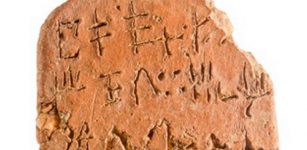 New Clues To Minoan Writing System
Archaeology | Sep 10, 2020
New Clues To Minoan Writing System
Archaeology | Sep 10, 2020 -
 Unique Glimpse Into The Secrets Of Mysterious Ancient Egyptian Manuscripts And Sacred Tablets Deliberately Hidden From The Outside World
Featured Stories | Dec 29, 2024
Unique Glimpse Into The Secrets Of Mysterious Ancient Egyptian Manuscripts And Sacred Tablets Deliberately Hidden From The Outside World
Featured Stories | Dec 29, 2024 -
 Amazing Archaeological Discovery In A Secret Underground Structure In Transylvania Could Rewrite Ancient History
Featured Stories | Feb 13, 2024
Amazing Archaeological Discovery In A Secret Underground Structure In Transylvania Could Rewrite Ancient History
Featured Stories | Feb 13, 2024 -
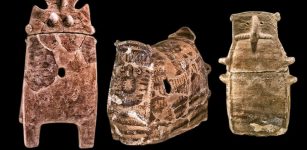 Blue Eyed People In Northern Israel 6,500 Years Ago: New DNA Results
Archaeology | Aug 22, 2018
Blue Eyed People In Northern Israel 6,500 Years Ago: New DNA Results
Archaeology | Aug 22, 2018 -
 African Skeletons From Early Colonial Mexico And First-Generation Slaves
Archaeology | May 4, 2020
African Skeletons From Early Colonial Mexico And First-Generation Slaves
Archaeology | May 4, 2020 -
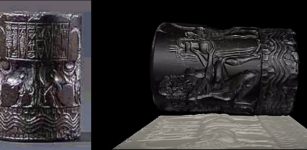 Sharkalishharri Cylinder Seal From The Fifth King Akkad Dynasty
Artifacts | Feb 14, 2016
Sharkalishharri Cylinder Seal From The Fifth King Akkad Dynasty
Artifacts | Feb 14, 2016 -
 Archaeologists Will Excavate Unique Ancient Roman Obelisk Near Lesicheri, Bulgaria
Archaeology | Apr 8, 2016
Archaeologists Will Excavate Unique Ancient Roman Obelisk Near Lesicheri, Bulgaria
Archaeology | Apr 8, 2016 -
 ‘Viking Disease’ Hand Disorder May Come From Neanderthal Genes
Archaeology | Jun 14, 2023
‘Viking Disease’ Hand Disorder May Come From Neanderthal Genes
Archaeology | Jun 14, 2023 -
 Identity Of Anti-Christ And Number 666 Revealed By Ancient History Professor
Archaeology | Apr 6, 2019
Identity Of Anti-Christ And Number 666 Revealed By Ancient History Professor
Archaeology | Apr 6, 2019 -
 More Than A Meteorite: New Clues About The Demise Of Dinosaurs
Paleontology | Dec 5, 2023
More Than A Meteorite: New Clues About The Demise Of Dinosaurs
Paleontology | Dec 5, 2023 -
 Statue Of Apollo Discovered in Ancient City Of Prusias ad Hypium, Turkey
Archaeology | Aug 26, 2022
Statue Of Apollo Discovered in Ancient City Of Prusias ad Hypium, Turkey
Archaeology | Aug 26, 2022 -
 Yokai Kitsune: Charming And Cunning Liar With Double Nature In Japanese Folklore
Featured Stories | May 22, 2020
Yokai Kitsune: Charming And Cunning Liar With Double Nature In Japanese Folklore
Featured Stories | May 22, 2020 -
 Ancient Human Traces Found In The Inhospitable Namib Desert
Human Beginnings | Oct 21, 2024
Ancient Human Traces Found In The Inhospitable Namib Desert
Human Beginnings | Oct 21, 2024 -
 New Study Questions Claims Homo Naledi Was Advanced
Evolution | Nov 13, 2023
New Study Questions Claims Homo Naledi Was Advanced
Evolution | Nov 13, 2023 -
 New Study: Middle Neolithic Circular Enclosure Of Goseck – Sacred Place And Astronomical Observatory
Archaeology | Aug 9, 2023
New Study: Middle Neolithic Circular Enclosure Of Goseck – Sacred Place And Astronomical Observatory
Archaeology | Aug 9, 2023 -
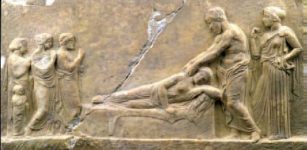 Asclepius Sanctuary On Acropolis Slope Will Be Restored
Archaeology | Jan 3, 2016
Asclepius Sanctuary On Acropolis Slope Will Be Restored
Archaeology | Jan 3, 2016 -
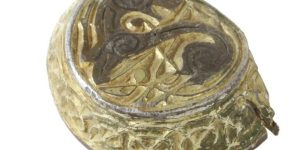 Strange 1,200-Year-Old Anglo-Saxon Artifact Used For Unknown Purpose Found In Norfolk, UK
Archaeology | Jan 18, 2024
Strange 1,200-Year-Old Anglo-Saxon Artifact Used For Unknown Purpose Found In Norfolk, UK
Archaeology | Jan 18, 2024 -
 Earliest Systematic Coal Exploitation For Fuel Goes Back To ~3600 B.P.
Archaeoastronomy | Aug 2, 2023
Earliest Systematic Coal Exploitation For Fuel Goes Back To ~3600 B.P.
Archaeoastronomy | Aug 2, 2023 -
 Flying Objects Were Present In Ancient Skies
Ancient Mysteries | May 9, 2014
Flying Objects Were Present In Ancient Skies
Ancient Mysteries | May 9, 2014 -
 Ancient Secrets Of Dougong Brackets: How 2,500-Year-Old Buildings Could Survive Earthquakes
Ancient History Facts | Jul 31, 2017
Ancient Secrets Of Dougong Brackets: How 2,500-Year-Old Buildings Could Survive Earthquakes
Ancient History Facts | Jul 31, 2017


